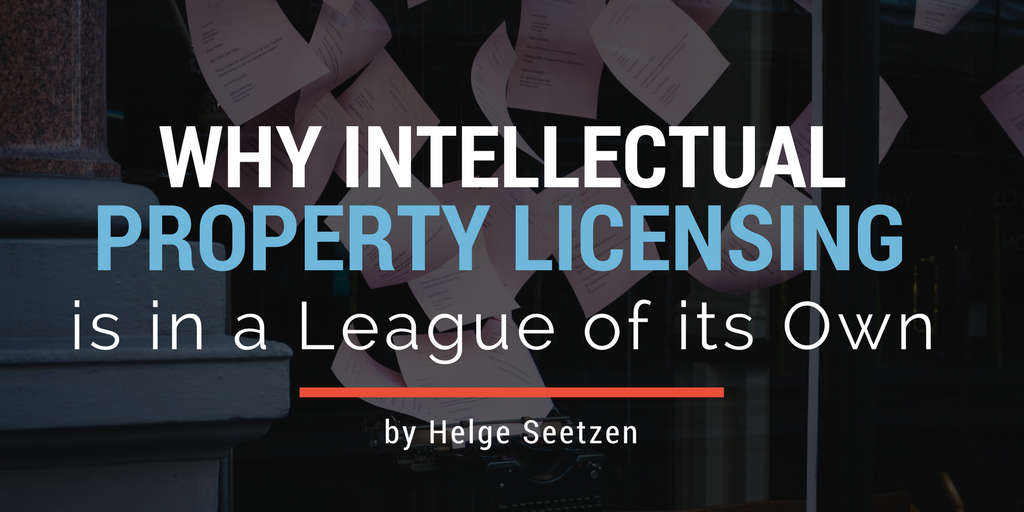I recently had the pleasure of doing an interview with Stephen Ibaraki and thought it was worth sharing some of our conversation on licensing negotiations (You can check out the full interview here).
Licensing is unlike exchanges in the normal marketplace because intellectual property licensing occurs entirely in the intangible domain. Normally when you are negotiating a deal you’ve got something, a product or a device, the other party wants it, and you agree on a price that is high enough that it fulfills your desire and low enough that the other person gets value out of the deal. That’s fairly straightforward. Those negotiations happen every day. We all do them, and so they feel very familiar. Doing them at a larger scale just means a larger scale.
Licensing is different because patents aren’t property in the conventional sense. They aren’t objects. It’s not like selling your car, or selling your house, or selling product in your company. Intellectual property is abstract: it’s in your mind. And that creates an interesting conundrum because basically you have two things to give:
- The intellectual part (knowledge, know-how, information), and
- The actual property part, which is the patents and such that legally give you ownership of that intellectual creation.
This gives intellectual property negotiations a very delicate character. Normally, when you sit at the negotiation table and you want to sell your car let’s say, you have your car. The other party can’t just take your car. If you want to sell the car, you can give the other person a test ride and they can try it out, they can look under the hood, and examine whatever they want in exhausting detail because they can’t just drive off with the car. Well, they can. But if they do, then the cops come and arrest them.
With intellectual property that’s not quite true. If you do the equivalent of letting them look under the hood that means exposing them to the proprietary secret parts of your technology, and at that point they have effectively gained possession of the intellectual aspect. That already gives them the ability to make the product. Now it just becomes a property thing, and the difference between other forms of property and intellectual property is that if somebody steals your car, the police come and arrest them at no cost to you. There’s an entity that basically fixes those kinds of theft issues. That doesn’t exist for intellectual property. If somebody steals your idea and makes a product, then nothing happens at all. The only person who can do anything about it is you, so at your own cost, you have to sue the thief for intellectual property infringement. That’s expensive, painful, and there are many jurisdictions where it is very difficult. So it’s possible to defend your rights, but for most, being put in this position is a recourse of last resort.
My best advice to entrepreneurs pursuing intellectual property licensing would be to learn how to sell without showing. You need to find a way to paint a picture-a vision- to convince people that you have something magical for their future in your hands, and that it is worth it for them to pay you first before they get all of the intellectual aspects within their grasp.



